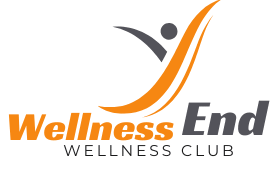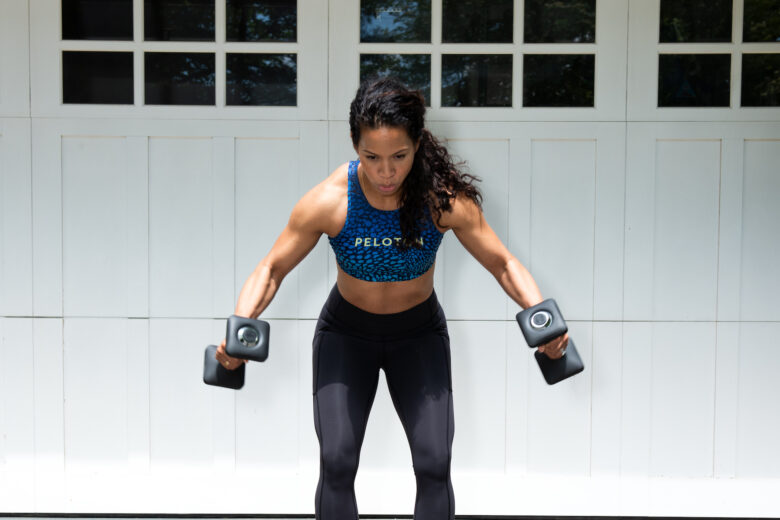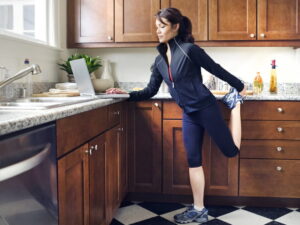The Physical Power of Consistent Movement
When you begin to move regularly, one of the first transformations you notice is an improvement in your physical strength and stamina. Your muscles become more toned and responsive, your joints grow more flexible, and your heart and lungs function more efficiently. This doesn’t require hours of exercise; even thirty minutes of moderate movement each day can lead to noticeable gains in energy and endurance. Over time, these physical benefits accumulate, reducing the risk of chronic conditions like obesity, heart disease, and type 2 diabetes.
Movement Enhances Mental Clarity
Alongside physical improvements, regular movement significantly boosts mental clarity. Exercise enhances blood circulation to the brain, delivering oxygen and nutrients that improve focus, memory, and cognitive function. People who move consistently often report sharper thinking, better problem-solving skills, and improved creativity. Movement acts like a natural stimulant for the brain, helping you feel more awake and productive throughout the day without relying solely on caffeine or stimulants.
Mood and Emotional Balance Through Exercise
Perhaps even more powerful than its cognitive benefits is the way movement affects your mood. Physical activity triggers the release of endorphins—your body’s natural “feel-good” chemicals—which can elevate your mood and reduce feelings of stress, anxiety, and depression. Just a brisk walk outdoors or a few minutes of dancing can lead to an instant emotional lift. These mental health benefits are not only short-term; studies show that regular exercise leads to long-lasting improvements in emotional well-being and resilience.
Better Sleep and Restorative Recovery
As you integrate movement into your daily routine, you’ll also likely experience better sleep. Exercise helps regulate your body’s internal clock and encourages deeper, more restorative rest. People who are physically active often fall asleep faster and enjoy more consistent sleep patterns. With quality sleep comes enhanced mood, better decision-making, and improved overall health. Movement and sleep work hand-in-hand to support a strong body and a clear mind.
Building Body Confidence and Self-Esteem
Movement also plays a key role in boosting self-esteem and body confidence. As your body becomes stronger and more capable, your relationship with yourself often improves. You begin to see your body not just as an appearance, but as a powerful instrument that allows you to move, explore, and achieve goals. This shift in mindset fosters a more compassionate and empowered sense of self. Regular movement becomes a way to celebrate your body’s abilities rather than just chasing aesthetic changes.
Movement as Mindful Connection
Another transformative effect of regular movement is how it enhances your connection to the present moment. Activities like yoga, tai chi, and mindful walking encourage you to slow down and pay attention to your body and breath. This mind-body connection nurtures self-awareness, reduces overthinking, and promotes emotional balance. In a world full of distractions, movement can be a form of meditation that grounds you in the now and cultivates inner calm.
Strengthening Your Immune System Naturally
Regular physical activity also strengthens your immune system. When you move consistently, your body becomes more efficient at fighting off illnesses. Exercise supports healthy circulation, reduces inflammation, and helps flush out toxins. While movement won’t make you invincible, it does reduce the frequency and severity of common colds and infections. A stronger immune system means fewer sick days and a more active, engaged life.
Enhancing Social Connection Through Movement
Socially, movement can improve your sense of connection and belonging. Whether it’s joining a fitness class, walking with a friend, or participating in community events, movement often brings people together. These shared experiences foster human connection, reduce loneliness, and build supportive relationships. The act of moving with others reinforces that health is not just a personal journey—it’s also a shared celebration of vitality and community.
Improving Posture and Preventing Everyday Pain
Another often-overlooked benefit of regular movement is its impact on posture and body alignment. Many modern aches and pains stem from poor posture due to long hours of sitting. Incorporating movement helps correct imbalances, strengthen core muscles, and relieve tension. With better posture comes reduced risk of injury, fewer headaches, and less strain on the neck, shoulders, and back. Improved posture also influences how you carry yourself, often resulting in increased confidence and presence.
Managing Chronic Conditions with Gentle Movement
For those managing chronic conditions, regular movement can be a powerful tool for pain management and improved function. Low-impact exercises such as swimming, cycling, or gentle stretching can reduce inflammation and stiffness. Movement supports joint health, boosts circulation, and encourages the release of natural pain-relieving chemicals in the body. Even for individuals with limitations, tailored movement plans can lead to significant improvements in quality of life.
A Lifelong Habit for Every Age
Children and teens benefit greatly from regular physical activity as well. Movement enhances their motor skills, supports academic performance, and helps build healthy habits early in life. For older adults, staying active contributes to balance, mobility, and independence. At every age and life stage, movement is a cornerstone of vitality and longevity. It’s never too early or too late to start reaping the rewards of regular physical activity.
Making Movement a Natural Part of Life
Importantly, movement doesn’t have to be structured or intense to be effective. Everyday activities like gardening, house cleaning, dancing to music, or walking the dog all count. What matters most is consistency. By incorporating movement into your daily life in a way that feels enjoyable and sustainable, you build a positive habit that supports your body and mind without adding stress or pressure.
Movement as a Lifestyle Medicine
In 2025 and beyond, health is increasingly defined by lifestyle choices rather than genetic fate. Movement is one of the most accessible and powerful lifestyle tools available. You don’t need a gym membership or expensive equipment—just a willingness to move your body in a way that feels good. As you commit to regular movement, you’ll notice how it touches every area of your life, from your physical strength to your emotional balance.
Embracing the Long-Term Transformation
The transformation that occurs through regular movement is both subtle and profound. It doesn’t happen overnight, but with consistency, you’ll feel more energized, confident, and connected—to your body, to your environment, and to others. Movement becomes more than a task; it becomes a celebration of what your body can do and a gateway to a more vibrant, fulfilling life.




